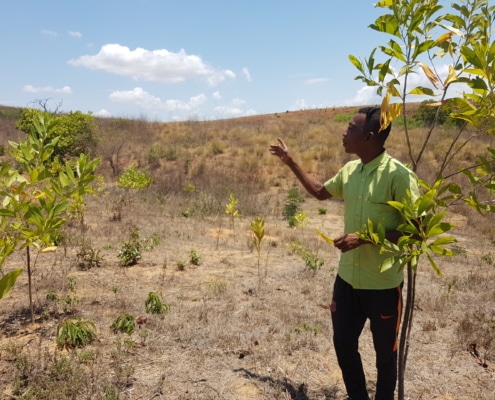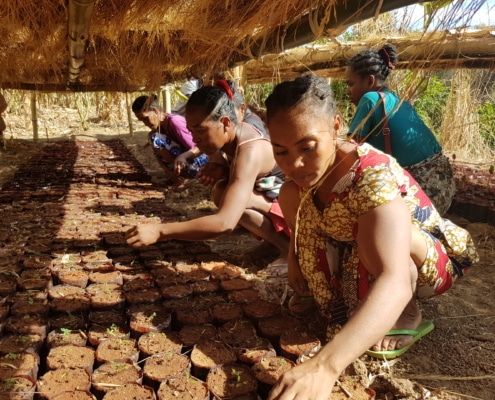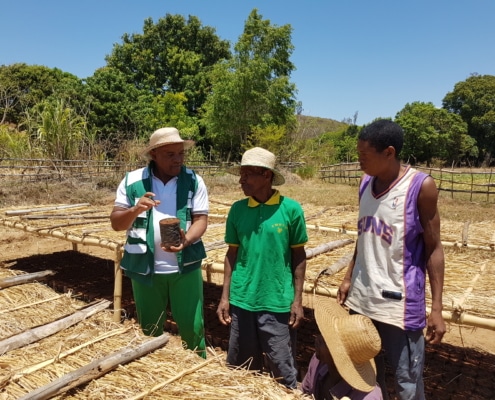In Madagascar, the recent news about famines in the south of the country cannot hide a reality that is not new: droughts and/or floods affect most of the country. The first victims are the farmers who see a degradation of their productive capital and therefore a decrease in their income. For two years, the producer organizations that are members of Fifata have been mobilizing as actors in reforestation and the fight against climate change. To protect the soil and therefore the farmers’ income.
Rina, a young farmer in the rural commune of Anjialava, in the Sofia region of northern Madagascar, is proud to talk about his projects. He manages a nursery of forest and fruit plants for his group and expresses his ambitions very simply: “In our village nursery, we produce 11,000 plants for 20 members each year. I am in charge of managing the nursery for the group, but for planting, we help each other to plant on our tanety [non-irrigated slopes]. As far as I am concerned, I have already planted more than 3000 Accacia plants. The plants here are only 5 months old. They grow very fast in this area. In just five years they will be full grown and I will already be able to cut them for lumber and charcoal. I will also have planted many more in the meantime and they will help protect the slope where the water sources of our plots are located. It’s work, but it’s a profitable investment for us and essential for our soils.
The Rina group is a member of the regional federation FFTS, a member of Fifata. This regional farmers’ organization is involved in the FFF (Forest and Farm Facility) project, implemented by Fifata in the Sofia region since 2020, and extended to two new regions (Amoron’i Mania and Vakinankaratra). This action, driven and financed by the FAO, has taken into account the proposals of Fifata’s member FOs in order to adapt to the constraints and opportunities identified by these organizations close to the farmers: relying on groups to manage village plant nurseries, associating forest and fruit tree seedlings, disseminating low-cost agroecological practices in promising sectors in order to generate income rapidly, etc.
The action relies on the local anchorage of the FOs that provide the services (tree nursery management, supply of seeds and seedlings, technical support) and on the support of members of the Fifata group (the specialized FO Ceffel for technical training and training of relay farmers, the regional federation FFTS for the organization of services to the farmers, etc.) or external partners, such as the NGO Graine de vie or the services of the DREDD (Direction Régionale de l’Environnement et du Développement Durable – Regional office for the Environment and Sustainable Development), for the supply of forestry plants.
Today, after only two years, 118 village forest and fruit tree nurseries are operational, 70 of which have already produced 158,000 seedlings. Of these seedlings, 51,000 have already been planted in the three regions.
This is the beginning of a dynamic that inspires the 12 regional federations that are members of Fifata, and which brings with it a legitimate hope: the farmers are the first to be concerned and can be the main actors in reforestation and soil protection, for their income and for their environment.






